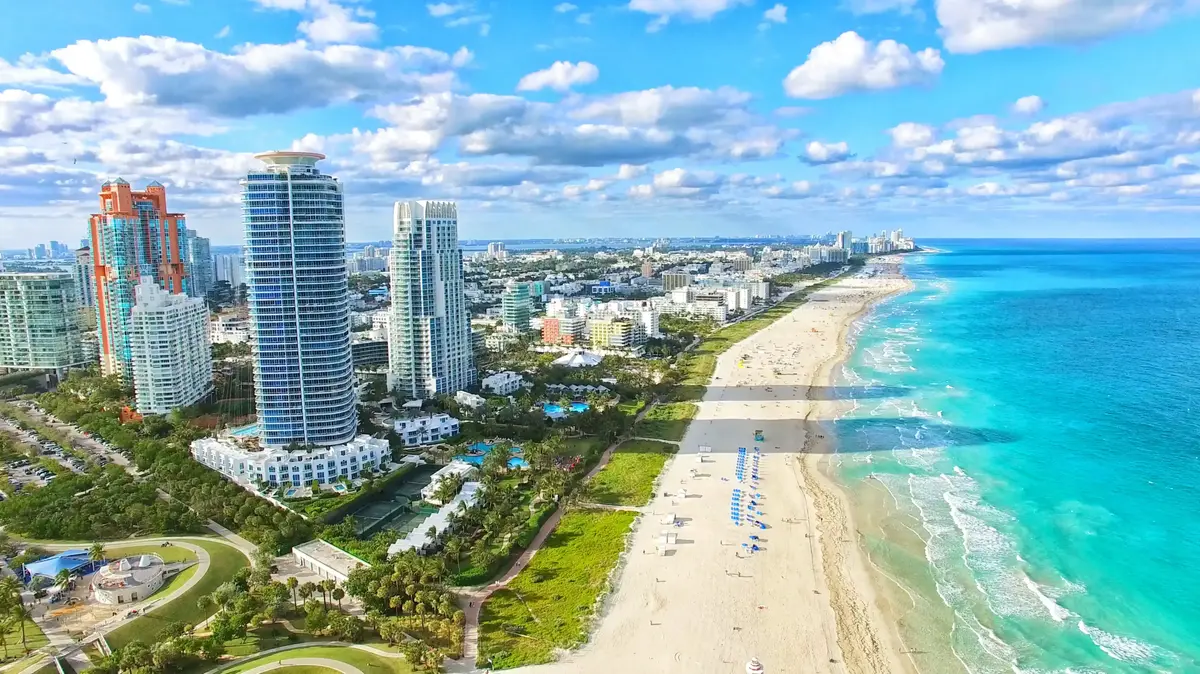The crisis of 2008?
That's really not the way to go
The difficult economic times that the USA is going through are once again flooding memories from the days of the great crisis of 2008 in the real estate market.
Is this what we are facing?
The truth couldn't be further
Yaron Shifoni, guest column
08/16/2022
Tuesday, August 16, 2022, 12:32 p.m
Share on Facebook
Share on WhatsApp
Share on Twitter
Share by email
Share in general
Comments
Comments
The economic crisis of 2008 is a formative episode in the American economy and one of the most serious real estate crises it has ever known. One that shaped an entire generation of investors and buyers, who carry that trauma with them ever since and try to be careful not to fall into a similar situation again.
Compared to 2008, Israeli investors know the real estate market. American in a much better way.
More information flowing to them in Facebook groups and various websites allows them to make more informed decisions.
This, of course, will not prevent the development of crises, but it will certainly enable more correct decision-making.
The reality of the last few months in the real estate market in the US, mainly due to the increase in interest rates, brought back memories of the past and the fear that the "real estate bubble of 2008" will repeat itself. But is this really the case?
Lehman Brothers in 2008.
The great symbol of the crisis (Photo: GettyImages, Spencer Platt)
Since 2021, the real estate market in the US has been in a state of price increases, which reached a level of 34.4% in the last two years, which did not deter buyers and investors and did not reduce demand.
Here, too, the corona virus and the monetary policy of the US government played a central role and were the main cause of these price increases. , cheap and accessible financing options.
In recent weeks, there has been another twist in the plot.
The war in Ukraine worsened the commodity crisis created by the corona virus and brought the world's economies into a slowdown and inflation, which currently stands at record levels of 9.1% in the US. The rising inflation led the Federal Bank to raise the interest rate in the economy sharply, no less than 4 times since March, up to levels of 2.5%.
As a result, we have recently witnessed the first signs of a moderation in real estate prices in the US.
According to the data of the research company Black Knight, the price increase rate decreased last June from levels of 19.8% to 17.3%.
In addition to this, the real estate website Zillow predicts that in the next 12 months, the increase in real estate prices in the US will be only 7.8%. The interest rate increases are slowly slowing down the American real estate market and making sure to moderate the demand.
This moderation will also have a moderating effect later on inflation.
A rapid increase in interest rates, a slowdown in construction starts along with a shortage of hundreds of thousands of apartments
According to Haver analytics data presented on CNBC, since last February, the pace of construction starts for private homes has been in a sharp decline, among other things due to the fear of a recession and a drop in demand.
Last June there was an 8% decrease in construction starts compared to April, and an 11% decrease compared to last year.
So while the increase in interest rates cools the market prices, on the other hand the contractors and developers reduce construction and the existing shortage of housing units may increase in the longer term.
The American market currently has a shortage of over half a million homes, so in the foreseeable future we expect to continue to see high demand and prices.
More in Walla!
Step by step: what made this customer service the leader in Israel?
In collaboration with Shufersal
Is the US economy going into a recession that could produce another housing crisis?
The American economy produces jobs at the highest rate in the world and unemployment rates are very low - the war in Ukraine has put the world's economies into an unexpected situation and fears of stagnation or even recession are approaching.
Despite the wave of layoffs and the hiring freeze in the high-tech market, today the US economy is on a positive trend and in a completely different situation than in 2008. According to the employment data published by the US Department of Labor for the month of July, no less than 528 thousand jobs were added to the market, with unemployment rates at a very low level and standing on 3.5%. In 2010 at the height of the subprime crisis, unemployment rates were almost 3 times higher and stood at 9.63%.
The demands are greater and so is the equity (Photo: ShutterStock)
Half of the apartments are financed with equity at a rate of 50% - one of the main characteristics of the 2008 crisis was the high mortgages that banks gave to buyers, who generously distributed credit to almost everyone.
The situation today in the US is completely different, with a significant percentage of buyers arriving with high equity. In Florida, for example, apartment buyers arrive with over 60% equity to purchase the apartment, compared to a third from a year ago. These encouraging data prove that buyers and investors have learned the lesson of That crisis, and the financial and financial environment in the US housing market is much stronger and more stable.
Another sign of the stability of the US real estate market is the significant percentage of investors in it.
According to John Burns Real Estate, today, about a third of the houses in the US are purchased by investors, a 5% increase compared to the last decade, when the majority of investors come with very high equity and rarely use mortgages.
Even if we are at the threshold of a price drop, the sights of 2008 will not return, the market is not in a bubble
Yaron Shifoni (Photo: Samdar Kfari)
In conclusion, I believe that even if we are today at the beginning of a correction in the market, it will not "crush" house prices and will not lower them significantly.
We are really not in the same situation as in 2008 because the economic back of the apartment buyers is much stronger and better, the leverage levels are relatively low and there are no cases of those who receive high financing on houses without having a real ability to repay.
Despite the conflicting trends in the housing market in the US, it should be remembered that those who decide to wait and leave their money without taking a position, may lose twice: once that their money in the bank is eroded with the high inflation (in Israel it is more than 4%) and a second time is the alternative return on Capital invested. The
writer is CEO and owner of Miami Tel Aviv Real Estate Investments
Real estate
Sand
Tags
real estate


/cloudfront-eu-central-1.images.arcpublishing.com/prisa/D3KKZZA5HZBEDA4TSYE7XVGSKQ.jpg)






